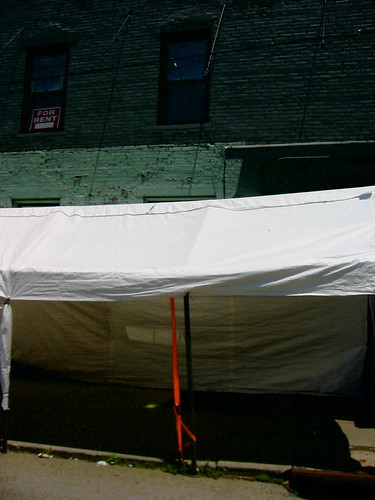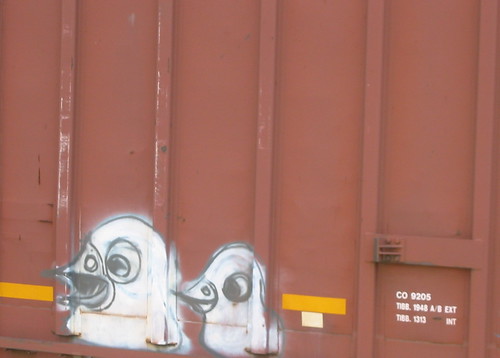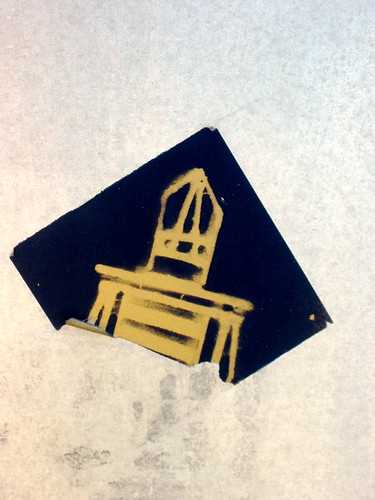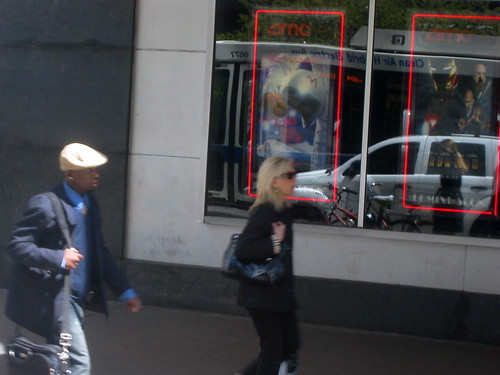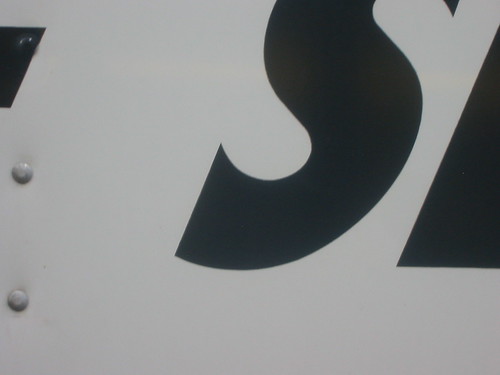
“Some Revisions”
In the wake of Tony Towle’s
letter of 9 June 2008 mentioning my (earlier) express’d
doubts regarding the proposed authorship (by Frank O’Hara) of a poem titled “Finding Leroi a Lawyer” print’d in Andrew Epstein’s
Beautiful Enemies: Friendship and Postwar American Poetry (Oxford University Press, 2006),
Epstein himself wrote a defense and excursus (dated 16 June 2008, under the subject, “Finding ‘Finding LeRoi a Lawyer’”:
Dear John,
I just noticed a recent post on your blog (which I read fairly regularly and always with much enjoyment) in which you quote from some correspondence you had with Tony Towle about O’Hara’s work and Kenneth Koch. Towle refers back to an earlier post of yours regarding my book and particularly to my discussion of the poem “Finding Leroi a Lawyer.” Since both you, and now Towle, seem to strongly doubt that this poem is actually by O’Hara, I wanted to offer my take on this, something I’ve been meaning to do for months, ever since I read your original post on the subject. I know that part of the impetus behind your recent doubting stems from Kent Johnson’s, well, bizarre (and Kent-ish-ly playful) view of the provenance of “A True Account . . .” (which I won’t take up here), but beyond that, I just wanted to address the fact that both you and Towle felt very skeptical that this poem was by O’Hara.
Back in ’07, you wrote: “At the risk of sounding like ‘some aficionado of [O’Hara’s] mess’ by saying it, I question whether Epstein is correct in assigning ‘Finding Leroi a Lawyer’ to O’Hara. I say, ‘“That’s not like Frank!”’ with the merest whiff of evidence, and no way of ascertaining it. (I do note that Kevin Killian calls it the ‘singlemost dumbest poem O’Hara ever put to paper,’ my reaction, too, and there’re some clunkers here and there in the ‘opus’ for comparison.) . . . My bet: a Kenneth Koch spoof” and “. . . I am curious: a handwritten copy? Typed? Whose typewriter?”
As you know, I found this poem in the Kenneth Koch archives at the New York Public Library’s Berg Collection. The Berg Collection does not let you photocopy documents, but when I first discovered it (back in about 1997), I transcribed it by carefully typing the poem onto a laptop. The poem was in a folder labeled “Frank O’Hara” (Series IX, Box 182), among many other folders of O’Hara material. The poem was typed, not handwritten. In answer to one of the questions you asked, I have no idea “whose typewriter” it was typed on (I’m no expert at deciphering “kernings” or whatever they’re called, to be honest). But, as I recall, it looked no different than any other typed poem or letter by O’Hara, of which I saw countless pages. My notes, which I just checked, also say that there was “one pencil correction.” I don’t recall what that was, but at the time I was pretty immersed in O’Hara stuff and would’ve probably recognized if it were someone else’s handwriting. (I of course wish I had a photocopy of the letter, but I don’t—only my notes and transcribed version—but I might add that years later, in 2002, when I was in the process of revising my dissertation into a book, I made another trip back to the NYPL to once again see this letter and to double-check that I’d transcribed it correctly).
As for the spelling of “Leroi”—it’s definitely possible that I transcribed it wrong and that the actual typescript says “LeRoi.” (I even mention elsewhere what Koch called O’Hara’s “exactitude for ephemera” and small details, so I agree with you and Towle that such a misspelling is uncharacteristic for FO’H). For whatever it’s worth, in researching Baraka for my book, I found it was not uncommon for contemporaries to refer to him as Leroi. In his letters, O’Hara usually refers to him as “Roi,” of course, but where he does use his full name, I see from my notes it’s always “LeRoi.” So as I said, it’s very possible I transcribed this wrong myself and then stuck with my own error in printing the poem in my book, thinking that I was reproducing the poem exactly as I found it. Although I hope I didn’t make this mistake, it is more likely than the idea that this misspelling is a sign that the piece was written by an imposter or someone other than O’Hara.
Just FYI (since I had fun looking back at my notes and thought this might be of interest and also useful to this discussion): other boxes and folders in Koch’s archives contained extensive correspondence with O’Hara, things like Koch’s own notes on O’Hara’s poems, and other miscellaneous O’Hara-iana (including a receipt for $20 made out to Koch to pay for a private nurse for the 11pm-7am shift, for O’Hara’s stay at Bayview Hospital on 7/25/66—eerie) and a copy of the poem “Radio” which has the last line “more than the simple ear can hold” with the word “simple” x’d out (thank god O’Hara didn’t believe in first thought, best thought).
According to my notes, some of the other stuff in that particular box (labeled “O’Hara II”) was:
—a handwritten (and very amusing) rejection letter from Theodore Weiss, poet and editor of Quarterly Review, to O’Hara, explaining why he couldn’t possibly find any poem of O’Hara’s that he liked enough to publish in Quarterly Review (the batch apparently included the wonderful poem “Music,” about which Weiss says: it “appeals to us for its courage in dealing with the domestic properties it does and the end is somehow finely sinister / sinisterly fine. But as a whole it seems rather formless (its music uneasy?) to us.” Hah!
—a manuscript of the poem “Invincibility” (my notes say that there was an epigraph from Auden crossed out in pencil and other corrections, slight, in O’Hara’s hand and dated ’53)
—many copies and original manuscripts of other poems (such as a xerox of “Autobiographia Litteraria” with a handwritten note by Koch on it)
—a program for an O’Hara-Norman Bluhm poem-painting exhibition in 1967 at NYU
—a program for “Hartigan and Rivers with O’Hara” exhibit at Tibor de Nagy in 1959
My point is that the folder containing this document is filled with things of this nature—all poems or documents related to O’Hara that somehow ended up in Koch’s possession. I believe Koch presented his archives to the NYPL with some kind of organization (he had gotten together all of his papers for them in the early 90s when I was working with him: I think Jordan Davis may have helped him get all the materials in order, but I can’t remember if that’s true. I just remembered that I was given a task of going through the books in his apartment living room and office at Columbia to make a giant list of all the ones that were inscribed to him). And as I recall, the library had been organizing, and was in the process of further trying to organize, the mass of materials, the last time I was there (in ’02). So as I said, this particular box and folder was filled with drafts of poems by O’Hara and other pieces of O’Hara memorabilia. There just are no signs that Koch wrote this poem or that anyone else did, and as I said, I would’ve probably known if it were Koch’s rather than O’Hara’s handwriting in the small handwritten correction on the typescript.
So, I guess my larger point is that I don’t see any reason to doubt that this poem is a poem by O’Hara that ended up in Koch’s possession but was never published. As you know, O’Hara constantly sent poems along with letters to friends (I don’t know for a fact that some of them never made it into Poems Retrieved, but I seem to recall from my days in the archives that there were at least a few poems that seemed to have fallen through the cracks (although I don’t recall which now). So when you look around in Koch’s archives and in Ashbery’s archives at Harvard there are many, many manuscripts of poems by O’Hara, many of which seem to be originals (i.e., actual documents typed by O’Hara). I see no reason to think that this piece is any different.
Then there’s the poem itself: as I argue in the book, I do think it’s a kind of intentional self-parody and not a particularly good poem. (I see in my original notes, I jotted down “it’s like a bad ‘Day Lady Died’”). I don’t agree with Kevin Killian that it’s the dumbest O’Hara poem in the universe, but it’s clearly not on par with his best—perhaps one reason why it never saw the light of day. But to my eyes and ear and my sense of that historical moment in O’Hara’s life, everything about it (the tone, the details, the references, as well as the material evidence) makes it seem like something O’Hara would’ve written. I just can’t imagine any reason to think the poem was written by Koch, trying to write in O’Hara’s voice. If, and when, Koch did try to imitate O’Hara, I agree with Towle: it would’ve come out looking very little like this poem.
In other words, it may not be good O’Hara, but I can say (completely unscientifically) that it almost certainly feels to me like an O’Hara poem, with all the references plucked straight out a day in the life of Frank O’Hara in October 1961, at the moment LeRoi had been arrested for obscenity charges because of Floating Bear. It does not read like anything that would ever have popped out of the imagination of Kenneth Koch—either at that time (when the idea of him writing a poem, even a parody of O’Hara, about the troubles of LeRoi Jones is pretty inconceivable!) or years later, when the sheer specificity and ephemerality of the poem’s references would’ve been very unlikely for Koch to have recreated.
Baraka’s arrest on obscenity charges was a very big deal for the NY poetry and art circles in October of 1961. As you know, O’Hara was very close with Baraka at this moment, and he was genuinely very upset about his arrest; it would seem that this poem was written in the days after this incident and expresses O’Hara’s wish to help a pal in trouble. It’s relevant that O’Hara wrote an open letter in defense of Baraka and Floating Bear on 10/21/61 (calling Baraka’s System of Dante’s Hell “certainly the finest piece of American prose since Kerouac’s first publications”). So again it seems more than likely that O’Hara would’ve written this poem in October 1961, and not at all (to me) like something Koch or anyone else would’ve written.
Since there was no evidence that it wasn’t by O’Hara and plenty that it was, I came to the conclusion that it was a poem by O’Hara that no one had ever commented on before. I admit it may be a stretch to say this with 100% certainty, but I still feel very comfortable with my assertion.
In the letter from Tony Towle that you posted, he mentions that he previously corresponded with you about this and expressed his feeling that “it’s clear to me (for the reasons I gave you after you printed it) that this could not have been a poem of Frank’s.” I’m quite curious why Towle is so convinced that it’s not by O’Hara—do you recall what his feelings about this were? And would you mind sharing this, or conveying my thoughts about this, with him?
I just wouldn’t want the impression to linger for you or for Towle (whose work I respect immensely) that I falsely, or without good reason, attributed this poem to O’Hara without some sense of the fuller context and my reasons for thinking it really is a long-lost and quite interesting O’Hara poem.
[. . .]
Take care,
Andrew
I reply’d by sending Epstein a copy of Towle’s note to me, written 23 August 2007, shortly after the original Isola di Rifiuti “yatter” regarding the issue. Towle’s note reads:
Dear John,
You are definitely onto something, that “Finding Leroi a Lawyer” could have been Kenneth doing a takeoff on “The Day Lady Died.” I think it is more than possible. It is most unlikely to have been written by Frank. Aside from the misspelled LeRoi (which by itself is just about proof enough) there is the length: too long for Frank in his “headlong” style, but Kenneth liked to play a theme out as far as he could. Also, the inclusion of the last names of two of the people mentioned is a tip-off of inauthenticity: Leroi [sic] Jones himself, and Patsy Goldberg. Frank refers to her simply as “Patsy” in “The Day Lady Died”—written in July 1959—and to her husband as “Mike.” One could argue that this poem predated “Lady,” and is a sort of warm-up or precursor; but the reference to The Floating Bear, the magazine edited by Jones and Diane di Prima between 1961 and 1963, pins down the chronology (and it could be narrowed down further by researching when the magazine had the trouble with the postal authorities). It is not credible that Frank would have written a loose and inferior version of “The Day Lady Died” at least two years later. And even as a self-parody, he would not have used Patsy’s full name, or misspelled Roi’s—how he usually referred to him—as he was at least as close to both of these people in the early ’60s as he had been in the late ’50s.
Regards,
Tony Towle
Here’s (the substance of) Epstein’s reply (dated 24 June 2008):
Seeing Tony’s initial note to you further provoked me to want to defend my attribution of this poem to O’Hara. The objections he raises are:
—the misspelling of LeRoi. I addressed this in my previous note, and suggested that this was probably an error of transcription on my part. Towle also mentions that O’Hara usually referred to Baraka as Roi. This is often, but not always, true in his letters, but in his poems he refers to him as “LeRoi”—for example, in “Personal Poem” and “F. (Missive & Walk) I.” Also, see “Personism,” where O’Hara refers to him as both “LeRoi” and “Roi.”
—the length: he claims that “Finding LeRoi a Lawyer” is probably not by O’Hara because it is “too long for Frank in his ‘headlong’ style.” I disagree. This poem is 384 words. The poem “Rhapsody,” as good an example of O’Hara’s “headlong” style as any, is 413 words. Other “headlong” poems are even longer: “Joe’s Jacket” is much longer than “Finding LeRoi a Lawyer,” and “Poem (Khrushchev . . .”) and “Adieu to Norman . . .” are just about as long. I can’t fathom how the length of the poem would suggest that this is not a poem by O’Hara.
—Towle says that the use of last names is “is a tip-off of inauthenticity” because “Frank refers to her simply as ‘Patsy’ in ‘The Day Lady Died’—written in July 1959—and to her husband as ‘Mike.’” Although I recognize that O’Hara very often refers to his friends by their first name only, this is by no means true of all his poems. As the examples below show, this generalization simply has no basis in fact, so to use it as a reason to disqualify this as an O’Hara poem seems wrong.
First, to just take the examples of Patsy and Mike:
—in “Why I am Not a Painter,” Mike Goldberg is, famously, referred to as “Mike Goldberg / is starting a painting”
—in “To Richard Miller,” O’Hara writes “Where is Mike Goldberg? I don’t know, / he may be in the Village far below”
—in “Getting up Ahead of Someone (Sun),” an “I-do-this-I-do-that” poem if there ever was one, O’Hara uses Patsy’s full name: “I read / van Vechten’s Spider Boy then a short / story by Patsy Southgate”
—in “June 2, 1958,” O’Hara uses Patsy’s full name: “Meanwhile, back at Patsy Southgate’s, two grown men / are falling off a swing into a vat of Bloody Mary’s” (great line, eh?)
Given these examples from other O’Hara poems from the same general time period, I just can’t accept the objection that O’Hara’s using Patsy’s full name in “Finding LeRoi a Lawyer” is “a tip-off of inauthenticity.”
Also, there are many, many examples of O’Hara using full names in his poems to refer to people to whom he was quite close—including some of his closest friends: John Ashbery, Kenneth Koch, Grace Hartigan, Bill Berkson, and some with whom he was very friendly (Allen Ginsberg, Edwin Denby, John Button, etc.)
Even without mentioning the many poem titles that use full names (like “To John Ashbery,” “John Button Birthday,” “Poem Read at Joan Mitchell’s”), here are some examples of lines from poems:
—although Ashbery is usually “Ashes” or “JA” or “John” he is also referred to by his last name, too: “I sit with Ashbery / in the Flore because of his poem about himself in a flower-bed” (“The ‘Unfinished’”)
—“what with my terrible hangover and the weekend coming up / at excitement-prone Kenneth Koch’s” (“Adieu to Norman . . .”)
—“I met Kenneth Koch’s mother / fresh from the Istanbul Hilton” (“Mary Desti’s Ass”)
—“see the back / of the head of Bill Berkson, aux Deux Magots” (“A Little Travel Diary”)
—sometimes Allen Ginsberg is just “Allen” (as in “Adieu” where he writes “Allen is back talking about God a lot”) but in other poems he is “Allen Ginsberg” (as in a poem written at almost the exact same time as “Adieu,” “Post the Lake Poets Ballad,” where he writes “Allen Ginsberg at the / Soviet Exposition”)
—“A Step Away from Them” obviously refers to “Edwin Denby,” as well as “Jackson Pollock” and “John Latouche” by their full names
—“Hans tells us / about his father’s life in Sweden, it sounds like Grace Hartigan’s / painting Sweden” (“Poem (Khrushchev . . .)”)
—“Paul / Taylor tells Bob Rauschenberg it’s on fire / and Bob Rauschenberg says what’s on fire . . . we go to Edwin Denby’s and quietly talk all night” (“Dances Before the Wall”)
—“there is nobody home at John Button’s1” (“Bill’s Burnoose”)
Finally, I have to add that there is absolutely no way this poem was written BEFORE “The Day Lady Died” since the incident it refers to regarding the trouble with Floating Bear and obscenity charges occurred in October 1961, over 2 years after he wrote the elegy for Billie Holiday.
Not to beat a dead horse, but I don’t see how any of these objections suggest that my attribution of this poem to O’Hara is mistaken, and I still feel there is every reason to think it was written by Frank O’Hara in October 1961.
Where’s Donald Allen when you need him?
[. . .]
Take care,
Andrew
Elided out: my own interlocutory prompts and feints and faults and reiterations. (To Epstein: “You (and Tony Towle) are both far more versed in the intricacies of O’Hara than I am, I suspect. . . . I think it’s a gut feeling of clatter and sluggishness that I responded to, O’Hara is fleeter, cuts to the quick.” To Towle: “Good to know there’s a little agreement out there. . . . The book’s not too bad, with an interesting bit about how
Choses passagères was likely put together with a Cassell’s dictionary . . .”) If I reread “Finding Leroi a Lawyer” now, I find I remain wholly unconvinced that it’s O’Hara’s writing. There’s something of the full-tilt gag man at work (see “tastes like the vodka I put in Stevie River’s Koolade the night Fabian collapsed in Hoboken / and which I wrote a poem about which Ned Rorem set”) uncut by O’Hara’s fierceness, sting. O’Hara’s comedy is that of the sad clown with a little bite, broodery, and sorrow, not the amphetamine’d up gagger galore. All signs point to O’Hara’s clear sense of ’s own excellence, something not necessarily disassociable from a self-deprecatory “stance”; however, the excess and over-reaching (pure lengthy self-parody, a thing O’Hara avoid’d) in that long-tumbling mock extend’d Homeric metaphor strikes a false note. Comments, readings, points of contention (or
repère) welcome. All in the spirit of unraveling the poem, it’s authorship.
—
Finding Leroi a LawyerSo you’ve finished the Locus Solus poster, Jane,
and I must write to Richard Miller, thanking him
for his having done it for nothing—we could use more of that! but meanwhile
I stop in a flowershop on 8th Avenue and buy Patsy Goldberg a print by Hokusai
(they knew the meaning of snow in those days!) and also I look,
a little, into the opened cups of the flowers, don’t get fresh! and I realize that Norman is probably out of booze
by now, so I stop in Parente’s Wines Whiskey Spirits
and buy him a little schmootz, it will go well with the tomato paste
he likes so much to use in his smaller paintings. And I go to the newsstand
to get Joe his copy of Pash, Bill his Opera Guide, and Joel Oppenheimer a pack of Gauloises,
even though I have by now a lot more than I can possibly carry
since I have been shopping for people for hours, and I am beginning to feel very Machado-esque
like having little chapters instead of trotting about all day in one big museum
when suddenly I see it: LUCIA DLUGOSZEWSKI IS HAVING A CONCERT ON FRIDAY,
and I run to the nearest phonebooth
which is hot and sweaty, I think because you are not in it, Vladimir
Ussachevsky, and I pull off the mouthpiece but not the receiver, which I will give to Leroi Jones
because he is in trouble
over something the postoffice says is obscene in The Floating Bear and I know that he needs one,
although he does not need the receiver, but when I try to call him
there’s nothing but the horrible silence, which is Dietrichesque,
and when even screwing the mouthpiece back doesn’t do any good
I decide that nothing will, and I take a drink of the schmootz
which tastes like the vodka I put in Stevie River’s Koolade the night Fabian collapsed in Hoboken
and which I wrote a poem about which Ned Rorem set, but I am very sorry anyway
at how things have turned out, and I discover, besides, when I am outside the phone booth
that I have lost my shopping list. Well, if nothing happens to me in the next two minutes
I can stop here and make another.

Andrew Epstein




